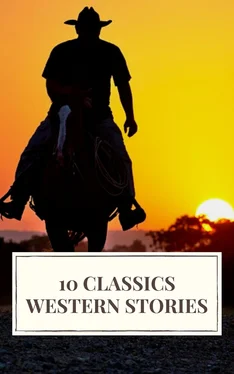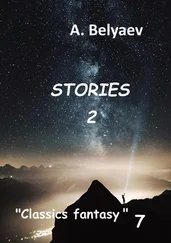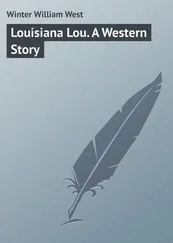“It was by my arrow that you lost your eye,” he said to one; “I scalped your father,” to another; and every taunt provoked counter-taunts accompanied with blows.
At length he looked at Snoqualmie,—a look so ghastly, so disfigured, that it was like something seen in a horrible dream.
“I took your sister prisoner last winter; you never knew,—you thought she had wandered from home and was lost in a storm. We put out her eyes, we tore out her tongue, and then we told her to go out in the snow and find food. Ah-h-h! you should have seen her tears as she went out into the storm, and––”
The sentence was never finished. While the last word lingered on his lips, his body sunk into a lifeless heap under a terrific blow, and Snoqualmie put back his blood-stained tomahawk into his belt.
“Shall we kill the other?” demanded the warriors, gathering around the surviving Bannock, who had been a stoical spectator of his companion’s sufferings. A ferocious clamor from the women and children hailed the suggestion of new torture; they thronged around the captive, the children struck him, the women abused him, spat upon him even, but not a muscle of his face quivered; he merely looked at them with stolid indifference.
“Kill him, kill him!” “Stretch him on red hot stones!” “We will make him cry!”
Snoqualmie hesitated. He wished to save this man for another purpose, and yet the Indian blood-thirst was on him; chief and warrior alike were drunken with fury, mad with the lust of cruelty.
As he hesitated, a white man clad in the garb of an Indian hunter pushed his way through the crowd. Silence fell upon the throng; the clamor of the women, the fierce questioning of the warriors ceased. The personality of this man was so full of tenderness and sympathy, so strong and commanding, that it impressed the most savage nature. Amid the silence, he came and looked first at the dead body that yet hung motionless from the stake, then sorrowfully, reproachfully, at the circle of faces around. An expression half of sullen shame, half of defiance, crossed more than one countenance as his glance fell upon it.
“Friends,” said he, sadly, pointing at the dead, “is this your peace with the Bannocks,—the peace you prayed the Great Spirit to bless, the peace that was to last forever?”
“The Bannocks sent back the peace-pipe by this man, and he broke it and cast the pieces in our teeth,” answered one, stubbornly.
“And you slew him for it? Why not have sent runners to his tribe asking why it was returned, and demanding to know what wrong you had done, that you might right it? Now there will be war. When you lie down to sleep at night, the surprise may be on you and massacre come while your eyes are heavy with slumber; when you are gone on the buffalo trail the tomahawk may fall on the women and children at home. Death will lurk for you in every thicket and creep round every encampment. The Great Spirit is angry because you have stained your hands in blood without cause.”
There was no reply. This white man, coming from far eastern lands lying they knew not where, who told them God had sent him to warn them to be better, had a singular influence over them. There was none of his hearers who did not dimly feel that he had done wrong in burning and scarring the poor mass of humanity before him, and that the Great Spirit was angry with him for it.
Back in the crowd, some of the children, young demons hungering for blood, began to clamor again for the death of the surviving Bannock. Cecil Grey looked at him pityingly.
“At least you can let him go.”
There was no answer. Better impulses, better desires, were struggling in their degraded minds; but cruelty was deeply rooted within them, the vague shame and misgiving his words had roused was not so strong as the dark animalism of their natures.
Cecil turned to Snoqualmie.
“I saved your life once, will you not give me his?”
The chief regarded him coldly.
“Take it,” he said after a pause. Cecil stooped over and untied the thongs that bound the captive, who rose to his feet amid a low angry murmur from those around. Snoqualmie silenced it with an imperious gesture. Then he turned to the young Bannock.
“Dog, one of a race of dogs! go back to your people and tell them what you have seen to-day. Tell them how we burned and tortured their messenger, and that we let you go only to tell the tale. Tell them, too, that Snoqualmie knows his sister died by their hand last winter, and that for every hair upon her head he will burn a Bannock warrior at the stake. Go, and be quick, lest my war-party overtake you on the trail.”
The Bannock left without a word, taking the trail across the prairie toward the land of his tribe.
“The gift was given, but there was that given with it that made it bitter. And now may I bury this dead body?”
“It is only a Bannock; who cares what is done with it?” replied Snoqualmie. “But remember, my debt is paid. Ask of me no more gifts,” and the chief turned abruptly away.
“Who will help me bury this man?” asked Cecil. No one replied; and he went alone and cut the thongs that bound the body to the stake. But as he stooped to raise it, a tall fine-looking man, a renegade from the Shoshones, who had taken no part in the torture, came forward to help him. Together they bore the corpse away from the camp to the hillside; together they hollowed out a shallow grave and stretched the body in it, covering it with earth and heaping stones on top, that the cayote might not disturb the last sleep of the dead.
When they returned to the camp, they found a war-party already in the saddle, with Snoqualmie at their head, ready to take the Bannock trail. But before they left the camp, a runner entered it with a summons from Multnomah calling them to the great council of the tribes on Wappatto Island, for which they must start on the morrow.
Chapter 2 ON THE WAY TO THE COUNCIL.
They arrived at the village of Wishram.
Irving: Astoria .
The camp was all astir at dawn, for sunset must see them far on the way. They must first cross the prairies to the northward till they struck the Columbia, then take the great trail leading down it to the Willamette valley. It was a two days’ journey at the least.
Squaws were preparing a hurried meal; lodge-poles were being taken down and the mats that covered them rolled up and strapped on the backs of horses; Indians, yelling and vociferating, were driving up bands of horses from which pack and riding ponies were to be selected; unbroken animals were rearing and plunging beneath their first burdens, while mongrel curs ran barking at their heels. Here and there unskilful hands were throwing the lasso amid the jeers and laughter of the spectators. All was tumult and excitement.
At length they were under way. First rode the squaws, driving before them pack-horses and ponies, for the herds and entire movable property of the tribe accompanied it in all its marches. The squaws rode astride, like men, in the rude wooden saddles that one yet sees used by the wilder Indians of eastern Oregon and Idaho,—very high, both before and behind, looking like exaggerated pack-saddles. A hair rope, tied around the lower jaw of the horse, answered for a bridle. To this must be added the quirt, a short double-lashed whip fastened into a hollow and curiously carved handle. The application of this whip was so constant as to keep the right arm in continual motion; so that even to-day on the frontier an Indian rider can be distinguished from a white man, at a distance, by the constant rising and falling of the whip arm. With the squaws were the children, some of whom, not over four, five, and six years of age, rode alone on horseback, tied in the high saddles; managing their steeds with instinctive skill, and when the journey became fatiguing, going to sleep, secured by their fastenings from falling off.
Читать дальше












